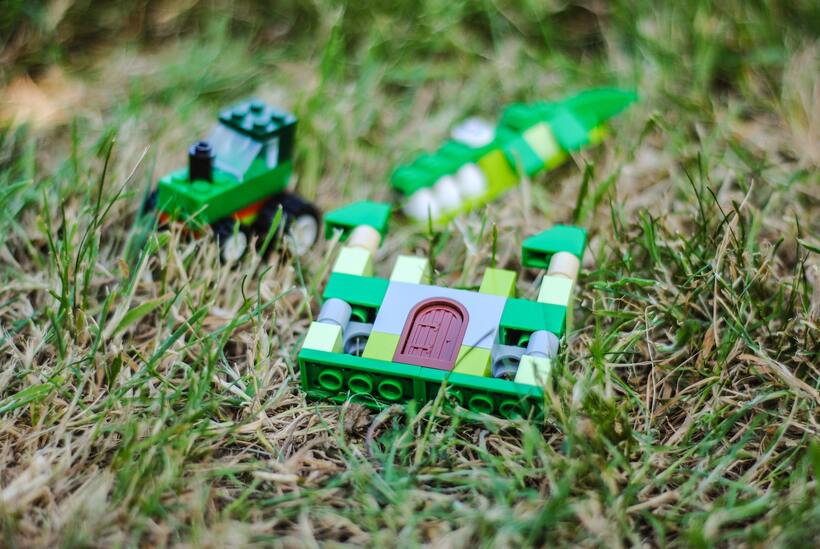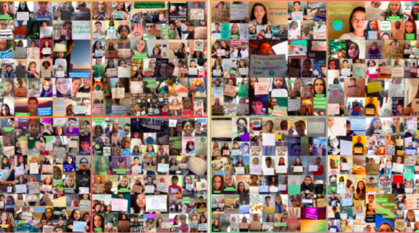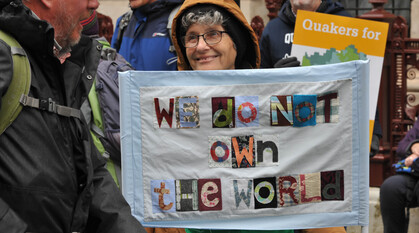From policy to practice: safeguarding the most vulnerable
Following a report into child sexual abuse in religious settings, Quakers in Britain adopted new safeguarding guidance for Quaker meetings. Nick Folkard explains how York Area Meeting changed its approach.

It only seems a moment ago that I was confined during lockdown and working on the York Area Meeting safeguarding policy. But time goes on quickly and I see from my notes that it has been three years. This short article is an account of my personal journey with safeguarding and that of my team. I will try to provide a pen portrait of what we have learnt, what we have achieved and *spoiler alert* why I'm proud of it.
Adapting and implementing the new Quaker policy reminded me of why I became a Quaker. It was the way that the Society of Friends has always striven to represent the vulnerable and those with no voice in the world. Safeguarding, because it seeks to protect everyone, is the way that I can evidence my Quaker witness in the world. Our task as York Area Meeting (AM) was to find ways of making that statement a reality.
Creating effective safeguards
I don't believe in creating a document that is sketchy or incomplete. Weak policies which have vague generalisations tend to make people think effective safeguards are in place when they are not. Our policy is prefaced by a summary but the full policy attempts to be a handbook which will cover all eventualities.
Because of this, it became clear that we'd have to provide training for our local meetings. Since 2021, the York AM safeguarding team has provided an induction course for everyone who is a role holder in a local meeting, by a PowerPoint which can be presented in person, by Zoom or Google Meet or can be downloaded and watched at home. The presentation is available to be used by our excellent Local Meeting Safeguarding leads as well. Every local meeting has now completed induction training for all postholders. We've learnt we will need to organise sessions every year as personnel change but being able to do them online is a real boon.
Our policy moves from general aims to specific instruction for those who are involved in regulated activities, such as our thriving children's groups. Since January 2022, we have trained 17 postholders by enrolling them on safeguarding training with 31:8, a specialist trainer for faith groups, and benefitted from the fact that we have several people who are trained to an even higher level by virtue of their jobs in the NHS or education.
As an area meeting, we feel we have really benefitted from the rising levels of expertise. The growing attendance at children's groups within four of our five local meetings organised by accredited volunteers has been a source of hope for the future.
Safer recruitment practices
Getting the right people into the right role is where the policy impacts on nominations. From the outset we made it clear we would only use safer recruitment for those involved in regulated activities and, as York AM had always required the references for those volunteering in children's groups, there was relatively little change.
Confirming appointments after 6 months at a business meeting was new, but I am convinced this is the right thing to do as it provides a chance to review and reflect on the suitability of a volunteer. Sadly, I have become aware of just how difficult it is for people to raise concerns, so placing the name of the volunteer on the agenda gives those who may have worries the chance to speak out either publicly or privately.
I always try to listen to suggestions for practical improvements. We have produced a guide for who needs to be trained and to what level, together with a short guide for nominations. The team are always looking for improvements to our systems so that when we gather the safeguarding records every January for central secure storage, we can make the process as simple as possible.
Creating a safe, caring environment
I know from other voluntary organisations that parents, carers and members expect there to be safeguards in place so that they can have confidence in a body. The recent implementation of national safeguarding guidelines for my cycle club reminded me of this. It is an interesting fact that many cases of abuse are not first reported to the police or social services but to a trusted friend in an informal setting. And of course, not all abuse is sexual in nature.
Abuse will always be there. We will never be able to close our folders with the thought that the task is finished. What we can do is work with energy and enthusiasm so that the most vulnerable can at least have a chance to live and grow in a safe, caring environment. I'm proud that my team and I strive to achieve this. It's not as big an achievement as some Friends have accomplished in the past but it's something that builds a better world and witnesses our beliefs. I hope you feel so as well.


